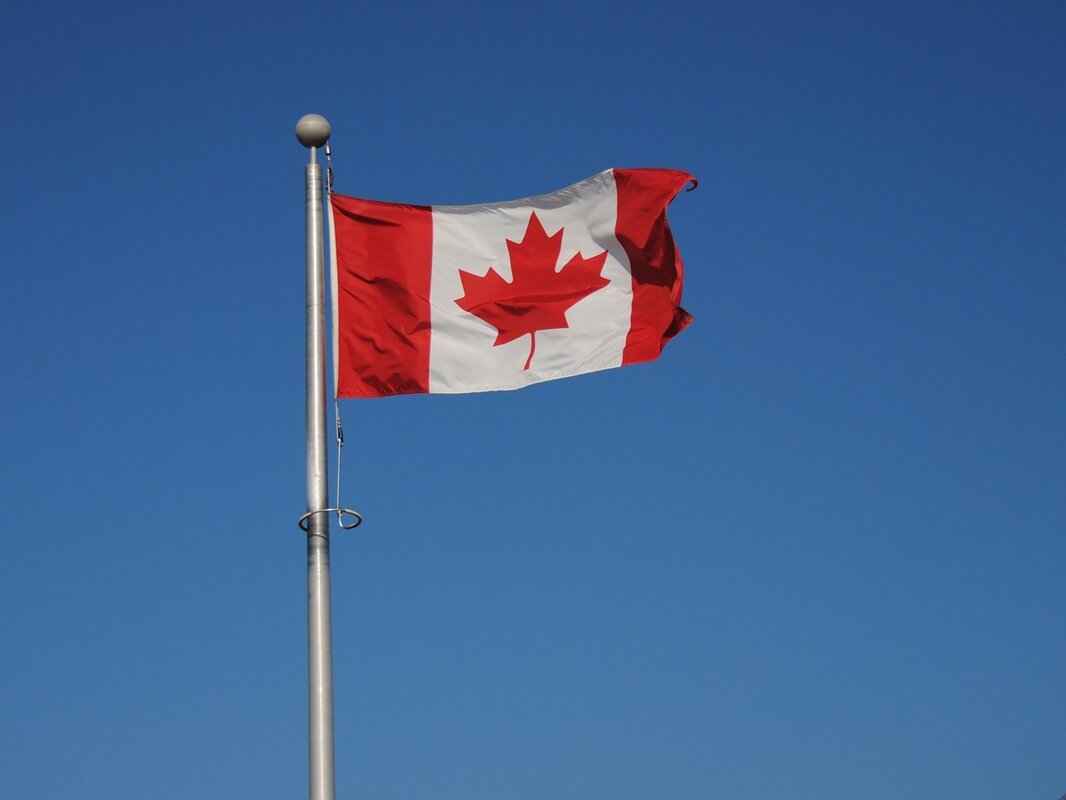This article delves into the various costs associated with relocating to Canada, offering essential insights on how to effectively budget for your international move. Understanding these expenses is crucial for ensuring a smooth transition to your new home.
Understanding the Overall Costs of Moving to Canada
Relocating to Canada encompasses a wide range of expenses, from transportation and housing to visa fees. A comprehensive understanding of these costs is vital for effective budgeting and planning.
Visa and Immigration Fees
Visa and immigration fees can significantly influence your moving budget. It is important to grasp the different types of visas available and their associated costs to avoid any surprises during the application process.
Types of Visas for Moving to Canada
- Express Entry: This popular immigration pathway allows skilled workers to apply for permanent residency. Fees include processing and biometrics, which vary based on individual circumstances.
- Family Sponsorship: If you have family in Canada, you may qualify for sponsorship. Fees include application processing and the right of permanent residence.
- Work Permits: For those seeking employment in Canada, obtaining a work permit is necessary, which also comes with its own set of fees and requirements.
Additional Immigration Expenses
In addition to visa fees, other immigration-related costs should be factored into your budget. These may include medical exams, police clearance certificates, and translation services for documents.
Transportation Costs: Shipping Your Belongings
Transportation costs can vary significantly based on the volume of goods, distance, and chosen shipping method. Understanding these factors is key to budgeting accurately.
Shipping Costs for Household Items
When it comes to shipping household items, you can choose between air freight and sea freight. Air freight is typically faster but more expensive, while sea freight is more economical for larger shipments.
Vehicle Shipping Expenses
If you plan on bringing your vehicle to Canada, be prepared for additional costs, including customs duties and transportation fees. Researching these expenses beforehand can save you money in the long run.
Housing Costs: Finding a Place to Live
Housing is often one of the most significant expenses when moving to Canada. Understanding the rental or purchase market in your desired location is crucial for accurate budgeting.
Average Rental Prices in Major Cities
Rental prices can differ dramatically across Canadian cities. For instance, cities like Toronto and Vancouver tend to have higher rental costs compared to smaller towns. Researching average prices in your chosen area will help you plan your budget effectively.
Buying a Home in Canada
If purchasing a home is in your plans, be aware of the various costs involved, such as down payments, closing costs, and property taxes. Proper financial planning is essential to avoid unexpected expenses.
Cost of Living in Canada
The cost of living can fluctuate widely depending on the region. Familiarizing yourself with average costs for groceries, utilities, and transportation can aid in effective budgeting.
Groceries and Daily Expenses
Understanding the average grocery costs in Canada is crucial for managing your budget effectively. Prices can vary based on location and shopping habits.
Healthcare Costs in Canada
While Canada boasts a public healthcare system, newcomers may encounter initial costs for medical services before becoming eligible for provincial coverage. Being aware of these potential expenses is important for financial planning.
Miscellaneous Costs to Consider
In addition to major expenses, various other costs should be considered when moving to Canada, such as travel insurance and settling-in expenses.
Travel Insurance for Your Move
Travel insurance is a vital consideration for international moves. Understanding the costs and coverage options can help protect you during your transition.
Settling-In Expenses
Settling-in expenses, including furniture and household items, can quickly accumulate. Planning for these costs ensures a smoother transition into your new home and helps you adapt to your new environment.

Understanding the Overall Costs of Moving to Canada
Moving to Canada is an exciting journey filled with new opportunities and experiences, but it also requires careful financial planning. Understanding the overall costs associated with relocating is essential for a smooth transition. This article delves into the various expenses you may encounter, ensuring you are well-prepared for your big move.
When considering a move to Canada, it is crucial to recognize the various expenses that will arise. These costs can be categorized into several key areas:
- Transportation
- Housing
- Visa and immigration fees
- Cost of living adjustments
- Miscellaneous expenses
Each of these categories contributes significantly to your overall budget, and having a clear understanding of them will help you avoid unexpected financial burdens.
Transportation is often one of the largest expenses when moving internationally. Depending on the volume of your belongings and the method of shipping, costs can vary greatly. For instance, air freight is faster but typically more expensive than sea freight. It is essential to compare quotes from multiple shipping companies to find the best deal.
The housing market in Canada is diverse, with prices varying significantly from one city to another. Understanding the average rental costs or property prices in your desired location is vital. For example, cities like Toronto and Vancouver tend to have higher rental prices compared to smaller towns. Researching local real estate trends will provide you with a clearer picture of what to expect.
Visa and immigration fees can add a substantial amount to your moving budget. Different visa categories, such as Express Entry or Family Sponsorship, come with their own fee structures. It is important to account for application fees, processing fees, and any additional costs, such as medical examinations or police clearance certificates.
Once you arrive in Canada, you will need to manage daily living expenses, which can vary widely by region. Understanding the average costs for groceries, utilities, and transportation is essential for effective budgeting. For example, the average monthly grocery bill for a family of four can range from CAD 800 to CAD 1,200, depending on the location and dietary preferences.
In addition to the major expenses, there are also various miscellaneous costs that can arise during your move. These may include travel insurance, which is critical for protecting your belongings during transit, and settling-in expenses, such as purchasing furniture or household items. It is advisable to allocate a portion of your budget for these unexpected costs to ensure a smoother transition.
In summary, moving to Canada entails a range of expenses that require thorough planning and budgeting. By understanding the costs associated with transportation, housing, visa fees, daily living expenses, and miscellaneous costs, you can create a comprehensive budget that prepares you for your new life in Canada.

Visa and Immigration Fees
When planning a move to Canada, one of the most critical factors to consider is the . These costs can significantly influence your overall moving budget and financial preparedness. Understanding the various types of visas available, along with their associated fees, is essential for anyone considering relocation.
Visa and immigration fees can vary widely depending on the type of visa you are applying for. Each visa category has its own fee structure, processing times, and requirements. It is essential to research and understand these fees to avoid unexpected expenses that could derail your moving budget.
- Express Entry Visa: This popular immigration program allows skilled workers to apply for permanent residency in Canada. The application fee for the principal applicant is approximately CAD 1,325, and additional fees apply for family members.
- Family Sponsorship Visa: If you are looking to reunite with family members in Canada, this visa option is available. The application processing fee is around CAD 1,050, plus an additional right of permanent residence fee of CAD 500.
- Work Permit: For those intending to work in Canada, the work permit application fee is approximately CAD 155. However, this may vary based on the type of work permit you are applying for.
In addition to the application fees, prospective immigrants should also consider other expenses associated with the immigration process:
- Medical Exams: Required for most visa applications, costs can range from CAD 100 to CAD 300 per person, depending on the provider.- Police Clearance Certificates: Fees for obtaining these documents can vary by country but typically range from CAD 50 to CAD 200.- Language Proficiency Tests: If required, the cost for tests like IELTS or CELPIP can be around CAD 300.
To effectively budget for your move, it is crucial to account for all potential fees. Here are some practical tips:
- Research the specific visa category that suits your situation and gather all relevant information about fees.
- Consider additional costs such as medical exams and language tests when calculating your overall budget.
- Keep a reserve fund for unforeseen expenses that may arise during the application process.
Visa and immigration fees are a significant part of the financial planning process when moving to Canada. By understanding the various types of visas and their associated costs, you can prepare a more accurate budget and ensure a smoother transition into your new life in Canada. Always stay informed about the latest immigration policies and fee structures, as they can change, impacting your overall moving expenses.
Types of Visas for Moving to Canada
When considering a move to Canada, understanding the various visa options available is crucial. Each visa type not only has its unique requirements but also comes with specific fee structures and processing times that can significantly affect your overall budget. Below is a detailed overview of the most common visa types for prospective immigrants.
Canada offers a variety of visa options tailored to different circumstances and needs. The most popular categories include:
- Express Entry
- Family Sponsorship
- Work Permits
- Student Visas
- Provincial Nominee Program (PNP)
The Express Entry system is a point-based immigration process designed for skilled workers. Applicants must create an online profile where they are assessed based on factors such as age, education, work experience, and language proficiency. The fees for Express Entry include:
- Application Processing Fee: $1,325 CAD for the principal applicant and $225 CAD for each accompanying family member.
- Biometrics Fee: $85 CAD per person.
Processing times can vary, but applicants can expect to receive a decision within six months.
The Family Sponsorship program allows Canadian citizens and permanent residents to sponsor their relatives to immigrate to Canada. This program includes:
- Application Processing Fee: $1,050 CAD for the principal applicant.
- Right of Permanent Residence Fee: $500 CAD.
Processing times can take anywhere from 12 months to several years, depending on the relationship and the country of origin.
Work permits are essential for foreign nationals looking to work in Canada. There are two main types:
- Employer-Specific Work Permit: Requires a job offer from a Canadian employer and a Labour Market Impact Assessment (LMIA). Fees include:
- Application Fee: $155 CAD.
- Open Work Permit: Allows individuals to work for any employer in Canada without a job offer. Fees are similar to the employer-specific permit.
Processing times can vary, typically ranging from a few weeks to several months.
For those planning to study in Canada, obtaining a Student Visa is essential. Students must be accepted into a designated learning institution (DLI) before applying. The costs include:
- Application Fee: $150 CAD.
Processing times can range from a few weeks to several months, depending on the applicant’s country of origin.
The Provincial Nominee Program allows provinces and territories to nominate individuals for immigration based on local labor market needs. Each province has its own criteria and fees, which can vary widely. Generally, applicants can expect to pay:
- Application Fee: Ranges from $250 CAD to $2,000 CAD, depending on the province.
Processing times also vary, but many nominees receive their permanent residency within six months after being nominated.
In summary, understanding the various visa options available for moving to Canada is essential for effective budgeting and planning. Each visa type has its own fee structure and processing times, making it crucial to research and prepare accordingly.
Express Entry Costs
Relocating to Canada can be an exciting yet challenging endeavor. One of the critical components of your moving budget involves understanding the Express Entry system and the associated costs. This immigration pathway is designed for skilled workers and offers a streamlined process for obtaining permanent residency. However, it comes with its own set of fees that applicants need to consider.
The Express Entry system requires applicants to pay various fees, which can differ based on individual circumstances and family size. The primary costs include:
- Application Processing Fees: Each applicant must pay a fee for processing their application. As of the latest updates, this fee is CAD 1,325 for the principal applicant and CAD 825 for a spouse or common-law partner. Dependent children do not incur additional application fees.
- Biometric Fees: Applicants are also required to pay for biometrics, which is essential for identity verification. The fee for biometrics is CAD 85 per person.
These fees are essential to keep in mind as they can add up, especially for families. For instance, a family of four could face fees exceeding CAD 3,000 just for the application and biometrics. It’s crucial to budget accordingly to avoid any financial surprises during the process.
In addition to the basic fees for the Express Entry application, there are other costs that potential immigrants should factor into their budget:
- Language Testing Fees: Most applicants must provide proof of language proficiency in either English or French. The cost for language testing can range from CAD 300 to CAD 400, depending on the testing agency.
- Educational Credential Assessment (ECA): If you completed your education outside Canada, you may need an ECA to verify your credentials. This process can cost between CAD 200 and CAD 400.
- Medical Examination Fees: A medical exam is typically required for immigration purposes, which can vary in cost but generally falls between CAD 100 and CAD 300 per person.
- Police Clearance Certificates: You may need to obtain police clearance from your home country, which can incur additional costs depending on the jurisdiction.
Understanding these additional costs is vital for effective financial planning. The total expenses can quickly accumulate, so it’s essential to prepare a comprehensive budget that includes all potential fees.
Fees for the Express Entry process can be paid online through the official Immigration, Refugees and Citizenship Canada (IRCC) website. Payment methods typically include credit cards and debit cards. It’s important to note that these fees are generally non-refundable, even if your application is refused. Therefore, ensuring that you meet all eligibility criteria before submitting your application is crucial.
In conclusion, while the Express Entry system offers a pathway to Canadian residency, it is accompanied by various costs that applicants must consider. By understanding these fees and planning accordingly, you can ensure a smoother transition to your new life in Canada.
Family Sponsorship Fees
When considering a move to Canada, one of the essential aspects to understand is the financial implications associated with family sponsorship. The costs involved in family sponsorship can be significant and must be factored into your overall budget. This section will delve into the details of these fees, providing clarity on what to expect as you navigate the process of reuniting with loved ones in Canada.
The family sponsorship program allows Canadian citizens and permanent residents to sponsor their relatives to come and live in Canada. The process requires several fees, primarily the application processing fee and the right of permanent residence fee. These fees are designed to cover the administrative costs of processing the application, ensuring that the system remains efficient and effective.
| Fee Type | Cost (CAD) |
|---|---|
| Application Processing Fee | $1,050 |
| Right of Permanent Residence Fee | $500 |
| Total Fees | $1,550 |
Understanding these costs is vital for those looking to reunite with family in Canada. The application processing fee of $1,050 is required for each person being sponsored, while the right of permanent residence fee of $500 is applicable once the application is approved, allowing the sponsored individual to obtain permanent residency.
It is also important to note that these fees are subject to change, so it is advisable to check the official Immigration, Refugees and Citizenship Canada (IRCC) website for the most current information. Additionally, there may be other costs associated with the sponsorship process, such as medical examinations and police clearance certificates, which can add to the overall expense.
For many families, the cost of sponsorship is a necessary investment in their future. Being aware of these fees and planning accordingly can alleviate some of the financial stress associated with the move. Moreover, potential sponsors should also consider the financial support they may need to provide to their family members during the initial transition period, as newcomers may face challenges in securing employment right away.
In summary, the are a crucial element of the immigration process for those wishing to bring family members to Canada. By understanding these costs and preparing for them, sponsors can ensure a smoother transition for their loved ones, paving the way for a successful new beginning in Canada.
Additional Immigration Expenses
When planning your move to Canada, it’s essential to consider a variety of costs beyond just the visa fees. While visa fees can be substantial, several can significantly impact your overall budget. This section will delve into these costs, ensuring you are well-prepared for your journey.
One of the key additional expenses is the cost of medical exams. As part of the immigration process, applicants are required to undergo a medical examination conducted by a panel physician approved by the Canadian government. The fees for these exams can vary depending on the physician and the specific tests required, typically ranging from $100 to $300 per person. It’s advisable to budget for this expense as it is mandatory for most visa applications.
Another important requirement is obtaining police clearance certificates from your home country. This document verifies that you have no criminal record and is crucial for your visa application. The cost for obtaining a police clearance can vary widely based on your location and the processing times involved. Generally, you should expect to pay anywhere from $50 to $200 for this certificate. Additionally, some countries may require you to provide fingerprints, which could incur extra costs.
If your documents are not in English or French, you will need to have them translated by a certified translator. The cost of translation services can add up quickly, especially if you have multiple documents. On average, you might spend $20 to $50 per page for professional translation services. It’s wise to factor in these costs to avoid any surprises during the application process.
In addition to the direct costs of applying for your visa, you will also need to demonstrate that you have sufficient funds to support yourself and your family upon arrival in Canada. The required amount varies depending on the size of your family and the immigration program you are applying for. For instance, the Express Entry program requires proof of funds ranging from $13,000 to $34,000 depending on family size. Make sure to research the specific requirements for your situation and include this in your budget.
Don’t forget to include costs related to travel and accommodation as you prepare for your move. This includes airfare, temporary housing upon arrival, and any transportation costs incurred while settling in. Depending on your location and travel arrangements, these costs can easily add up to several thousand dollars. Booking your flights in advance and researching accommodation options can help you find the best deals.
Lastly, it’s wise to budget for miscellaneous expenses that may arise during the immigration process. This could include costs for obtaining additional documents, fees for legal advice, or even unexpected expenses related to your move. Setting aside a contingency fund of around 10% of your total budget can provide a safety net for any unforeseen costs.
In summary, when planning your move to Canada, it is crucial to account for various alongside visa fees. By understanding the costs associated with medical exams, police clearance certificates, translation services, settlement funds, travel, and miscellaneous expenses, you can create a comprehensive budget that prepares you for a successful transition to your new life in Canada.

Transportation Costs: Shipping Your Belongings
When planning a move to Canada, transportation costs are a significant aspect that can greatly influence your overall budget. Understanding the various factors that affect these costs is essential for a smooth relocation process.
Transportation costs can vary widely based on several key factors:
- Distance: The farther you are moving, the higher the transportation costs. This is especially true for international moves.
- Volume of Goods: The more items you have, the more space you will need, which can increase shipping costs. It’s crucial to assess what you really need to bring.
- Shipping Method: Different methods of shipping, such as air freight or sea freight, come with their own cost structures. Air freight is typically faster but more expensive, while sea freight is more economical for larger shipments.
When deciding how to ship your belongings, consider the following methods:
- Air Freight: Ideal for urgent shipments, air freight is the quickest option, but it can be significantly more costly. Prices can range from $5 to $10 per kilogram, depending on the airline and distance.
- Sea Freight: This method is more cost-effective for larger shipments. Typically, costs can range from $1000 to $5000 for a full container, depending on the size and destination.
Beyond the basic shipping costs, there are other expenses to keep in mind:
- Customs Duties: When shipping goods internationally, customs duties may apply. These fees vary based on the type of goods and their value.
- Insurance: It’s advisable to insure your belongings during transit. Insurance costs typically range from 1% to 3% of the total value of your goods.
- Packaging Costs: Proper packing materials are essential to protect your items. Budget for boxes, bubble wrap, and other packing supplies, which can total around $200 to $300.
If you plan to bring your vehicle to Canada, understanding the associated costs is crucial. Vehicle shipping can involve:
- Transportation Fees: Depending on the shipping method, costs can range from $800 to $2000.
- Customs Duties: Importing a vehicle may incur additional taxes and fees, which can be significant.
To budget effectively for transportation costs, consider creating a detailed spreadsheet that includes:
- Estimated shipping costs based on your chosen method
- Potential customs duties and taxes
- Insurance and packaging expenses
- Any additional fees, such as vehicle shipping
By taking the time to analyze these factors and plan accordingly, you can ensure a more accurate budget for your move to Canada. This preparation will ultimately lead to a smoother transition into your new home.
Shipping Costs for Household Items
When planning an international move, understanding the is crucial. The choice between air freight and sea freight can significantly impact your overall moving budget. Each shipping method presents its own set of advantages, disadvantages, and price points that you should consider carefully.
Several factors influence the cost of shipping your household items, including:
- Distance: The further your destination, the higher the shipping costs are likely to be.
- Volume and Weight: Shipping costs are often calculated based on the total weight and volume of your belongings.
- Shipping Method: Choosing between air freight and sea freight can drastically change your budget.
- Insurance: Opting for insurance coverage can add to your costs but provides peace of mind.
Air freight is the fastest option for shipping your household items. This method is ideal for those who need their belongings quickly. However, it comes at a premium price. Costs can range from $5 to $10 per kilogram, depending on the airline and destination. Air freight is typically more suitable for smaller shipments or essential items that you cannot afford to wait for.
On the other hand, sea freight is the more economical choice for shipping larger volumes of household goods. Although it takes significantly longer—usually several weeks to months—sea freight can save you a substantial amount of money. Costs for sea freight can range from $1,000 to $3,000 for a standard 20-foot container, depending on the shipping line and destination.
| Shipping Method | Cost Range | Delivery Time | Best For |
|---|---|---|---|
| Air Freight | $5 – $10 per kg | 1 – 2 weeks | Small, urgent shipments |
| Sea Freight | $1,000 – $3,000 for 20ft | 2 – 8 weeks | Large shipments |
When budgeting for shipping costs, consider additional expenses such as:
- Customs Duties: Be aware of the customs regulations and potential duties on your items when they arrive in Canada.
- Packing Services: Hiring professionals for packing can add to your costs but may protect your belongings better during transit.
- Storage Fees: If your belongings arrive before you do, consider the cost of storage facilities.
In summary, the choice between air and sea freight for shipping household items depends on your budget, timeline, and the volume of goods. By understanding the costs associated with each method, you can make an informed decision that aligns with your moving plans.
Vehicle Shipping Expenses
When relocating to Canada, many individuals consider bringing their vehicles along for convenience and familiarity. However, shipping a vehicle internationally involves a range of costs that must be carefully considered. Understanding these expenses can significantly impact your overall budget for the move.
Customs DutiesOne of the primary costs associated with shipping your vehicle to Canada is customs duties. These are fees imposed by the Canadian government on imported goods, including vehicles. The duty rate may vary based on the vehicle’s value and country of origin. Generally, you can expect to pay around 6.1% of the vehicle’s value, but it’s essential to check the latest regulations as they can change. Additionally, if your vehicle is manufactured outside of North America, it may be subject to higher tariffs under the Canada-United States-Mexico Agreement (CUSMA).
Transportation FeesTransportation fees represent another significant expense. The cost of shipping your vehicle can vary widely based on several factors, including the shipping method, distance, and the size of your vehicle. For instance, shipping via containerized methods tends to be more expensive than roll-on/roll-off (RoRo) services, but it offers better protection for your vehicle. On average, you might expect to pay anywhere from $1,000 to $3,000 for shipping, depending on these variables.
Insurance CostsWhile your vehicle is in transit, it’s advisable to consider purchasing insurance coverage. Shipping companies often offer insurance, which can provide peace of mind against potential damages during transport. The cost of this insurance will depend on the value of your vehicle and the shipping method chosen. Typically, insurance costs can range from 1% to 3% of the vehicle’s total value.
Import FeesIn addition to customs duties and transportation fees, you’ll also need to account for import fees. These fees can include inspection fees, which ensure that your vehicle meets Canadian safety and emissions standards. Depending on your vehicle’s specifications, you might incur costs ranging from $200 to $500 for these inspections. It’s crucial to ensure that your vehicle complies with Canadian regulations to avoid any delays or additional charges.
Broker FeesNavigating the customs process can be complex, and many individuals opt to hire a customs broker to assist with the paperwork and logistics. While this service can simplify the process, it does come at a cost. Broker fees typically range from $100 to $500, depending on the broker’s experience and the complexity of your shipment.
Additional ConsiderationsWhen budgeting for vehicle shipping, it’s essential to consider additional costs such as fuel charges, taxes, and potential modifications required to meet Canadian standards. If your vehicle is older or has unique features, you may need to make modifications, which can add to your overall expenses.
- Research Shipping Companies: Compare quotes from different shipping companies to find the best deal.
- Understand Canadian Regulations: Familiarize yourself with the regulations governing vehicle imports to avoid unexpected costs.
- Plan Ahead: Shipping your vehicle can take time, so plan your move accordingly to avoid any last-minute rush.
In summary, while bringing your vehicle to Canada can be beneficial, it’s crucial to understand the various costs associated with shipping. From customs duties and transportation fees to insurance and broker costs, careful planning and research can help you manage these expenses effectively. By being informed, you can ensure a smoother transition to your new home in Canada.

Housing Costs: Finding a Place to Live
When considering a move to Canada, one of the most significant aspects to factor into your budget is housing costs. Understanding the rental and purchase markets in your desired location is crucial for effective financial planning. Housing expenses can vary widely based on the city, neighborhood, and type of accommodation you choose.
In Canada, rental prices can fluctuate dramatically depending on the region. Major cities like Toronto and Vancouver are known for their high rental rates, while smaller towns may offer more affordable options. It is essential to research the average rental prices in your chosen area to ensure that your budget aligns with the local market.
| City | Average Monthly Rent (1 Bedroom) |
|---|---|
| Toronto | $2,300 |
| Vancouver | $2,500 |
| Montreal | $1,500 |
| Calgary | $1,600 |
If you are considering purchasing a home in Canada, it is vital to understand the various costs involved. These include:
- Down Payment: Typically ranges from 5% to 20% of the home’s purchase price.
- Closing Costs: These can include legal fees, inspection costs, and land transfer taxes, which can add up to 1.5% to 4% of the purchase price.
- Mortgage Insurance: If your down payment is less than 20%, you will be required to pay for mortgage insurance.
Additionally, it is essential to factor in ongoing costs such as property taxes, utilities, and maintenance fees when budgeting for homeownership.
Before making a decision, it is advisable to stay informed about local market trends. This can include:
- Market Conditions: Is it a buyer’s or seller’s market?
- Future Developments: Are there any upcoming projects that may affect property values?
- Neighborhood Amenities: Access to schools, parks, and public transport can also influence housing costs.
When moving to Canada, you should also consider the type of accommodation that best suits your needs. Options include:
- Apartments: Often more affordable and conveniently located.
- Condos: May offer amenities but come with additional condo fees.
- Single-Family Homes: Provide more space but typically come with higher costs.
In conclusion, understanding housing costs is essential for anyone planning to move to Canada. Whether renting or buying, thorough research and budgeting will help ensure a smoother transition into your new home.
Average Rental Prices in Major Cities
When considering a move to Canada, understanding the average rental prices in major cities is crucial for effective budgeting. Rental prices can fluctuate significantly depending on the city, neighborhood, and type of accommodation. This article delves into the rental landscape across various Canadian cities, offering insights to help you make informed decisions.
In Canada, cities such as Toronto, Vancouver, and Montreal are known for their diverse rental markets, each presenting unique challenges and opportunities for newcomers.
| City | Average Monthly Rent (1 Bedroom) | Average Monthly Rent (3 Bedrooms) |
|---|---|---|
| Toronto | $2,300 | $3,200 |
| Vancouver | $2,500 | $3,500 |
| Montreal | $1,600 | $2,400 |
| Calgary | $1,800 | $2,600 |
| Ottawa | $1,800 | $2,500 |
As illustrated in the table above, Toronto and Vancouver are among the most expensive cities for renters, with average prices for a one-bedroom apartment exceeding $2,300. In contrast, cities like Montreal and Calgary offer more affordable options, with average rents for similar accommodations significantly lower.
When planning your budget, it’s essential to consider not only the rental prices but also the cost of living in these cities. For instance, while Toronto may have higher rent, it also offers a vibrant job market and numerous amenities that can justify the expense. Conversely, Montreal provides a rich cultural experience at a lower cost, making it an attractive option for many newcomers.
- Toronto: Known for its high-rise apartments and bustling urban life.
- Vancouver: Offers stunning views and a strong real estate market, but at a premium.
- Montreal: Features a diverse rental market with a mix of historic and modern properties.
- Calgary: Provides a balance of urban living and access to nature, often at lower prices.
- Ottawa: The capital city with a stable rental market, ideal for families and professionals.
Before making your decision, it’s advisable to conduct thorough research on the neighborhoods within each city. Factors such as proximity to public transportation, schools, and local amenities can significantly affect rental prices and your overall living experience. Websites like Realtor.ca and Kijiji can provide valuable insights into current rental listings and average prices.
In summary, understanding the average rental prices in major Canadian cities is vital for effective financial planning. By researching the rental landscape, considering the cost of living, and assessing personal needs, you can make informed choices that align with your budget and lifestyle.
Buying a Home in Canada
When considering , it is crucial to understand the various costs associated with the process. This not only includes the initial down payment but also encompasses closing costs, which can significantly impact your overall financial planning.
The down payment is the initial amount you pay towards the purchase price of your home. In Canada, the minimum down payment varies based on the home’s price:
- 5% for homes priced up to $500,000
- 10% for the portion of the home price between $500,000 and $999,999
- 20% for homes priced at $1 million or more
It’s essential to note that if your down payment is less than 20%, you will be required to purchase mortgage default insurance, which adds to your overall costs.
In addition to the down payment, closing costs are another significant expense that homebuyers need to account for. These costs typically range from 1.5% to 4% of the purchase price and can include:
- Legal fees: Hiring a lawyer to handle the transaction.
- Home inspection fees: Ensuring the property is in good condition.
- Title insurance: Protecting against potential ownership disputes.
- Property transfer tax: A tax levied by the province on property purchases.
- Appraisal fees: Evaluating the home’s market value.
Beyond the down payment and closing costs, several additional expenses can arise when buying a home in Canada:
- Moving costs: Transporting your belongings to your new home.
- Renovation costs: Making any necessary changes or improvements to your new property.
- Utilities and ongoing maintenance: Setting up services and maintaining the home.
It is essential to create a comprehensive budget that includes not only the purchase price but also these additional costs. A well-thought-out budget will help ensure that you are financially prepared for the responsibilities of homeownership.
In conclusion, understanding the full scope of costs associated with buying a home in Canada is vital for effective financial planning. From down payments to closing costs and beyond, being informed about all potential expenses will lead to a smoother and more successful home-buying experience.

Cost of Living in Canada
Relocating to a new country is a significant decision that requires careful financial planning. One of the most critical aspects of this planning is understanding the , which can vary widely depending on the region you choose to settle in. This knowledge will enable you to budget effectively and prepare for the financial realities of your new life.
Canada is a vast country with diverse regions, each exhibiting its own unique cost structure. Major cities like Toronto and Vancouver tend to have higher living expenses compared to smaller towns or rural areas. For instance, housing costs in urban centers can consume a significant portion of your monthly budget, while groceries and transportation may also see fluctuations based on local pricing.
Understanding the average grocery costs is essential for managing your monthly expenses. On average, a single person can expect to spend between $200 and $400 per month on groceries, depending on their dietary preferences and shopping habits. For families, this figure can rise significantly. Here’s a quick breakdown:
- Fruits and Vegetables: $50 – $100
- Meat and Dairy: $75 – $150
- Snacks and Beverages: $25 – $50
Being aware of local supermarkets and discount stores can help you save money on everyday purchases.
Utilities are another essential component of the cost of living. On average, monthly utility bills (including electricity, heating, cooling, water, and garbage) can range from $150 to $300, depending on the size of your home and the region. Internet and mobile services add an additional $60 to $100 to your monthly expenses. It’s advisable to research local providers to find the best deals.
Transportation options in Canada vary significantly by region. In larger cities, public transit systems are well-developed, and a monthly pass typically costs around $100. In contrast, if you plan to drive, consider the costs of fuel, insurance, and maintenance. Gas prices fluctuate but average around $1.50 per liter. Additionally, parking fees in urban areas can add to your monthly budget.
While Canada has a public healthcare system, newcomers may encounter initial costs for medical services before they become eligible for provincial health coverage. It’s wise to budget for private health insurance during this transition period, which can range from $100 to $200 per month for comprehensive coverage.
In addition to the primary living costs, there are various other expenses to factor into your budget:
- Travel Insurance: Essential for covering any unexpected health issues during your move.
- Settling-In Costs: Furniture and household items can add up quickly, so consider budgeting $1,000 to $3,000 for initial purchases.
- Emergency Fund: It’s prudent to have savings set aside for unforeseen expenses, ideally around three months’ worth of living costs.
By familiarizing yourself with these various costs associated with living in Canada, you can create a more accurate budget that reflects your lifestyle and expectations. Understanding the nuances of the cost of living will not only ease your transition but also contribute to your overall financial well-being in your new home.
Groceries and Daily Expenses
Understanding the average grocery costs and daily expenses in Canada is crucial for newcomers aiming to manage their budgets effectively after relocating. With the rising costs of living, especially in major cities, having a clear picture of what to expect can alleviate financial stress.
On average, a typical Canadian household spends approximately $200 to $300 per week on groceries. However, this amount can vary significantly based on factors such as location, family size, and dietary preferences. For instance, urban areas like Toronto and Vancouver tend to have higher grocery prices compared to smaller towns.
To better understand grocery expenses, here’s a table illustrating average prices for common items:
| Item | Average Price (CAD) |
|---|---|
| Milk (1 liter) | $1.50 |
| Bread (loaf) | $2.50 |
| Eggs (dozen) | $3.00 |
| Chicken (1 kg) | $12.00 |
| Apples (1 kg) | $3.50 |
Additionally, many Canadians opt for bulk buying or shopping at discount grocery stores to save money. Stores like No Frills and Walmart often provide competitive pricing on essential items.
In addition to grocery costs, it’s essential to consider other daily expenses. Here’s a list of typical monthly expenses you might encounter:
- Utilities (electricity, water, heating): $150 – $300
- Internet: $60 – $100
- Transportation (public transit pass): $100 – $150
- Dining Out: $15 – $25 per meal
Transportation costs can also vary, especially if you plan to use public transit or own a vehicle. Public transport is generally more economical, with monthly passes providing significant savings for regular commuters.
It’s important to note that grocery and daily expenses can differ widely across provinces. For example, residents in British Columbia often face higher costs compared to those in Alberta. This is due to various factors, including local taxes, supply chain logistics, and regional demand.
Moreover, certain cities may offer specific discounts or loyalty programs that can help mitigate costs. Always check local flyers or apps to stay informed about sales and promotions.
Ultimately, understanding the average grocery costs and daily expenses in Canada allows newcomers to create a realistic budget, ensuring a smoother transition into their new life. By planning ahead and being aware of potential costs, you can enjoy your new environment without the burden of unexpected financial strain.
Healthcare Costs in Canada
When considering a move to Canada, it is essential to understand the healthcare costs associated with the transition. While Canada is renowned for its public healthcare system, newcomers often encounter initial expenses that may not be immediately apparent. This article delves into the various healthcare costs that newcomers may face, helping you to prepare financially for your new life in Canada.
Canada’s healthcare system is primarily funded through taxes, allowing residents to access medically necessary services without direct charges at the point of care. However, newcomers may not be eligible for provincial health coverage immediately upon arrival. This can lead to out-of-pocket expenses for medical services during the waiting period.
Upon moving to Canada, newcomers typically face a waiting period that can last up to three months before they qualify for provincial healthcare coverage. During this time, it is crucial to budget for the following potential costs:
- Medical Visits: General practitioner visits can range from CAD 100 to CAD 300 if you do not have insurance.
- Emergency Services: A visit to the emergency room can cost upwards of CAD 1,000, depending on the severity of the situation.
- Prescription Medications: Without coverage, prescription costs can add up quickly, often exceeding CAD 100 per month.
- Dental and Vision Care: These services are not covered under provincial health plans and can be quite expensive, with dental check-ups averaging CAD 150.
To mitigate these costs, many newcomers opt for private health insurance during their waiting period. This type of insurance can cover a variety of services, including:
- Routine medical care
- Emergency services
- Prescription medications
- Dental and vision care
Private insurance plans vary widely in terms of coverage and cost, so it is essential to shop around and choose a plan that best fits your needs.
Once you gain access to provincial healthcare, it is important to understand that some services may still require additional payments. For example, while hospital visits and doctor consultations are generally free, services like physiotherapy, chiropractic care, and certain specialist consultations might not be covered.
To prepare for healthcare costs effectively, consider the following budgeting strategies:
- Research Local Healthcare Services: Familiarize yourself with the healthcare providers in your area and their associated costs.
- Set Aside an Emergency Fund: Having a financial cushion can help cover unexpected medical expenses.
- Consider Supplemental Insurance: Once you are eligible for provincial health insurance, you may still want to invest in supplemental insurance to cover additional services.
By understanding the healthcare costs associated with moving to Canada, you can better prepare yourself financially and ensure a smoother transition into your new life. Always remember to keep abreast of changes in healthcare policies and options available to newcomers, as these can significantly affect your budgeting and planning.

Miscellaneous Costs to Consider
When planning your move to Canada, it is essential to consider not only the significant expenses but also the various miscellaneous costs that can arise during the transition. These additional expenses can quickly accumulate, impacting your overall budget. Below, we will delve into some of the key miscellaneous costs you should be aware of, including travel insurance and settling-in expenses.
Travel insurance is a crucial aspect of international relocation. It provides coverage for unexpected events such as trip cancellations, lost luggage, and medical emergencies while you are en route to Canada. The cost of travel insurance can vary based on factors such as:
- Duration of Coverage: Longer trips may incur higher premiums.
- Coverage Type: Comprehensive plans that include medical, trip interruption, and baggage coverage tend to be more expensive.
- Age and Health: Older individuals or those with pre-existing conditions may face higher rates.
On average, you can expect to pay between $100 to $300 for travel insurance, depending on your specific needs. It is advisable to compare various policies to find the best coverage at a reasonable price.
Once you arrive in Canada, there are several settling-in expenses to consider. These costs can include:
- Furniture and Household Items: Depending on your living situation, you may need to purchase essential items like beds, sofas, and kitchenware. Budgeting around $1,000 to $5,000 for initial furnishings is common.
- Utilities Setup: Setting up utilities such as electricity, water, and internet often involves initial connection fees. Expect to pay around $200 to $500 for these services.
- Transportation Costs: If you plan to use public transport, purchasing monthly passes can add up. Alternatively, if you buy a vehicle, consider registration and insurance costs.
Furthermore, you may want to set aside funds for food and groceries during your first few weeks, as it may take time to settle into a routine. A budget of approximately $300 to $500 for initial grocery shopping is advisable.
While Canada has a public healthcare system, newcomers may face initial healthcare costs before they become eligible for provincial health coverage. This includes:
- Medical Check-ups: Depending on your situation, you may need to pay for medical exams or vaccinations.
- Prescription Medications: If you require ongoing medications, factor in these costs until you are covered under the public system.
Budgeting around $100 to $300 for these initial medical expenses can help you avoid surprises.
In addition to the above, it is wise to allocate a portion of your budget for unexpected costs that may arise during your move. This can include:
- Emergency Expenses: Having a buffer of $500 to $1,000 can help manage unforeseen situations.
- Legal Fees: If you require legal assistance for immigration or housing issues, these costs can vary significantly.
Being prepared for miscellaneous expenses can help ensure a smoother transition to your new life in Canada. By understanding these additional costs, you can create a more accurate and comprehensive budget that will ease the financial burden of your move.
Travel Insurance for Your Move
When planning an international move, one of the most critical aspects to consider is travel insurance. This type of insurance is designed to cover unexpected events that may occur during your transition, providing peace of mind as you embark on this new journey.
Moving to a new country can be both exciting and daunting. With so many logistics to manage, having travel insurance ensures that you are protected from unforeseen circumstances such as trip cancellations, lost luggage, or medical emergencies. Without it, you could face significant financial burdens during an already stressful time.
- Trip Cancellation: If your plans change unexpectedly, this coverage can reimburse you for non-refundable expenses.
- Medical Coverage: This is crucial, especially if you are moving to a country where healthcare costs are high. It can cover medical emergencies and hospital stays.
- Lost or Delayed Baggage: If your belongings are delayed or lost, travel insurance can help you recover expenses for essential items.
- Emergency Evacuation: In case of natural disasters or political unrest, this coverage ensures you can be safely evacuated.
The cost of travel insurance can vary widely based on several factors, including your age, health, the duration of your trip, and the level of coverage you choose. On average, you can expect to pay between $50 to $300 for a comprehensive plan. It’s crucial to compare different policies to find one that fits your specific needs and budget.
- Coverage Limits: Ensure that the policy covers a sufficient amount for medical expenses, particularly if you have pre-existing conditions.
- Exclusions: Read the fine print to understand what is not covered. Some policies may exclude certain activities or situations.
- Customer Reviews: Research the reputation of the insurance provider. Customer feedback can provide insights into their reliability and claims process.
Purchasing travel insurance is a straightforward process. You can buy it online through various insurance providers or travel agencies. It’s advisable to shop around and compare quotes before making a decision. Make sure to read the policy details carefully and ask questions if anything is unclear.
Many people believe that travel insurance is unnecessary or too expensive. However, the potential costs of not having coverage can far exceed the price of a policy. Additionally, some may think that their existing health insurance will cover them abroad, but this is often not the case. Understanding these misconceptions can help you make more informed decisions.
Investing in travel insurance for your international move is not just a wise choice; it is a necessary step in ensuring a smooth transition. By understanding the coverage options and costs, you can protect yourself and your belongings, allowing you to focus on settling into your new home without unnecessary worry.
Settling-In Expenses
When relocating to a new country, particularly Canada, understanding the is crucial for a seamless transition. These costs can accumulate quickly, often catching newcomers off guard. From essential furniture to everyday household items, budgeting for these expenses is vital to ensure that your new home feels comfortable and welcoming.
What Are Settling-In Expenses?
Settling-in expenses encompass a wide range of costs associated with making your new residence livable. This includes:
- Furniture: Beds, sofas, tables, and chairs can be significant investments. Depending on your taste and the size of your home, the total cost can vary greatly.
- Household Items: Kitchenware, bedding, and decorative items are necessary for daily living. These small expenses can quickly add up, so it’s wise to create a comprehensive list.
- Utilities Setup: Setting up essential services like electricity, water, and internet can incur initial fees. Be sure to account for deposits and installation charges.
- Appliances: If your new home doesn’t come with appliances, you may need to purchase a refrigerator, washing machine, or microwave, which can be costly.
Estimating Your Settling-In Costs
To avoid financial strain, it’s essential to estimate these costs accurately. Start by evaluating what you already own and what you’ll need to buy. Consider the following:
- Inventory: Make a detailed list of all items you plan to bring with you versus what you need to purchase.
- Research Prices: Check local stores and online marketplaces to get a sense of furniture and household item prices in your new area.
- Consider Secondhand Options: Many newcomers find great deals on secondhand furniture and items through local classifieds or thrift stores, which can significantly reduce costs.
Planning for Unexpected Expenses
While it’s important to budget for known costs, it’s equally vital to set aside funds for unexpected expenses. These might include:
- Emergency repairs or replacements for damaged items during the move.
- Additional costs for services like cleaning or pest control that may arise after moving in.
Tips for a Smooth Transition
To make your settling-in process smoother, consider the following tips:
- Create a Budget: Outline all your expected expenses and stick to it as closely as possible.
- Prioritize Purchases: Focus on acquiring essential items first, such as a bed and kitchen supplies, before moving on to non-essentials.
- Utilize Local Resources: Many communities offer support for newcomers, including furniture banks and local charities that can help with initial costs.
By carefully planning for settling-in expenses, you can alleviate much of the stress associated with moving to Canada. A well-thought-out budget not only helps you manage your finances but also allows you to create a space that truly feels like home.
Frequently Asked Questions
- What are the main costs involved in moving to Canada?
The primary costs include visa and immigration fees, transportation expenses for shipping your belongings, housing costs, and the general cost of living. It’s essential to budget for each of these categories to avoid any financial surprises.
- How much do visa and immigration fees typically cost?
Visa fees can vary significantly depending on the type of visa you’re applying for. For example, Express Entry fees can range from CAD 1,325 for an individual to higher amounts for families. Don’t forget to include costs for medical exams and police clearance certificates as well!
- What are the shipping costs for household items?
Shipping costs depend on the volume of your goods and the shipping method you choose. Air freight is faster but more expensive, while sea freight is generally more economical but takes longer. Always compare quotes to find the best deal!
- How can I estimate housing costs in Canada?
Housing costs vary widely across Canada. Research average rental prices or home purchase costs in your desired city to get a clearer picture. Websites like Realtor.ca or local rental listings can provide valuable insights!
- Are there additional costs I should consider when moving?
Absolutely! Don’t overlook travel insurance, settling-in expenses for furniture, and daily living costs like groceries and utilities. Planning for these will help ensure a smoother transition into your new life in Canada.














